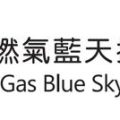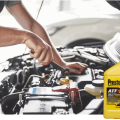Pumps are:
- The unsung heroes of various industries.
- Powering essential processes such as fluid transfer.
- Chemical dosing.
- Hydraulic fracturing.
In particular, frac pumps are vital in the oil and gas sector, enabling the extraction of hydrocarbons from deep within the Earth. To ensure these critical pieces of equipment perform reliably and have a long lifespan, it is imperative to implement rigorous pump maintenance practices. This article explores the importance of pump maintenance, focusing on the role of frac pumps in the oil and gas industry.
Understanding the Significance of Frac Pumps
Frac pumps are indispensable in hydraulic fracturing, the process of extracting oil and natural gas from underground reservoirs. This technique involves injecting a high-pressure fluid mixture into a well to create fractures in rock formations, thereby allowing hydrocarbons to flow more freely. Frac pumps play a central role in hydraulic fracturing because they generate the extreme pressures required for breaking open rock formations. These pumps are designed for high-pressure, high-volume fluid delivery and are constructed to withstand the demanding and often harsh conditions of the oil and gas industry.
The Importance of Pump Maintenance
Efficient pump maintenance is not merely a good practice; it’s a necessity. Neglecting maintenance can lead to decreased performance, costly breakdowns, and unplanned downtime. These consequences can be particularly detrimental in the context of fracpumps.co and other industrial pumps.
Here are some compelling reasons why pump maintenance is crucial:
- Preventative Measures: Regular maintenance allows for the early detection of issues and the implementation of preventive measures, reducing the risk of equipment failure.
- Performance Optimization: Well-maintained pumps operate at peak performance, ensuring efficient fluid transfer and hydraulic fracturing processes.
- Cost Savings: By preventing major breakdowns, maintenance minimizes costly repairs and the expenses associated with downtime.
- Safety Assurance: Properly maintained pumps contribute to a safer working environment, reducing the risk of accidents and injuries.
- Environmental Responsibility: Efficient pumps consume less energy, resulting in lower environmental impact and reduced operational costs.
Best Practices in Pump Maintenance
To ensure that your frac pumps and other industrial pumps perform optimally and last for an extended period, it’s essential to implement the following maintenance best practices:
- Routine Inspection: Regularly inspect the pump for signs of wear, leaks, or damage. Early detection of issues can prevent them from escalating.
- Lubrication: Ensure all moving parts are well-lubricated according to the manufacturer’s guidelines. Adequate lubrication reduces friction and extends the life of pump components.
- Seal Checks: Verify that seals and gaskets are intact and functioning correctly. Faulty seals can lead to leaks and reduced efficiency.
- Pressure and Flow Rate Testing: Periodically assess the pump’s pressure and flow rate to confirm that it meets the specified requirements for your applications.
- Vibration Analysis: Use vibration analysis to detect any irregularities or imbalances in the pump’s operation, which could indicate impending issues.
- Spare Parts Inventory: Maintain an inventory of critical spare parts to facilitate quick replacements when necessary. This minimizes downtime.
- Training and Expertise: Ensure that personnel responsible for pump maintenance are adequately trained and possess the knowledge to perform their tasks effectively.
- Scheduled Maintenance: Develop a routine maintenance schedule that aligns with the manufacturer’s recommendations. Following a plan ensures that maintenance tasks are noticed.
The Role of Technology in Pump Maintenance
Technology has played a significant role in pump maintenance in the digital age. Predictive maintenance techniques, powered by sensors and data analysis, allow for the real-time monitoring of pumps. This technology can predict when maintenance is required based on equipment performance and conditions. Such an approach minimizes downtime and maximizes the lifespan of pumps.
Conclusion:
In conclusion, the importance of pump maintenance, particularly for critical equipment like frac pumps, must be considered. Regular maintenance leads to optimal performance, cost savings, and increased equipment longevity. As a result, industries such as oil and gas, benefit from efficient hydraulic fracturing operations, reduced downtime, and improved safety measures. By adhering to maintenance best practices and leveraging modern technology, organizations can ensure their pumps continue to be the unsung heroes of industrial processes.





